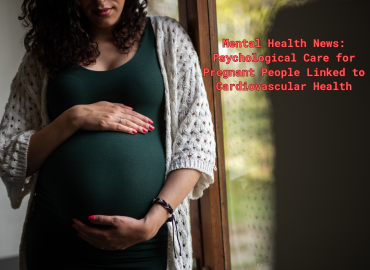Mental Health News: Psychological Care for Pregnant People Linked to Cardiovascular Health
In the United States, cardiovascular issues are the #1 cause of death in pregnant and perinatal people. Also, the maternal mortality rate in the United States is two, sometimes three times higher than other high-income nations. There is great disparity among perinatal people in marginalized and underrepresented ethnicities.
Along with cardiovascular disease, psychological health conditions like anxiety and depression are common among perinatal people and are also leading causes of death during that period. Non-fatal cases can become chronic and contribute to other ailments. These can include hypertension (high blood pressure), cardiomyopathy, and preeclampsia (featuring liver and
kidney damage).
New discoveries indicate a link between mental health care during the perinatal period and improved cardiovascular health, short and long-term. The study we discuss today was published this February in a statement in the Journal of the American Heart Association.
“It’s critical that we redefine maternal cardiovascular health to include psychological health because there is robust evidence on the association of psychological health with cardiovascular outcomes,” says writing group Chair Garima Sharma, M.D., FAHA, director of preventive cardiology and women’s cardiovascular health at Inova Schar Heart and Vascular in Fairfax, Virginia. “We also recognize the importance of providing guidance to clinicians on how to integrate psychological health screening into the perinatal period and focus on providing a holistic approach with the mind and heart interconnection.”
Pregnant and perinatal people frequently experience adverse events such as:
− Disordered sleep
− Lack of partner support
− High-risk pregnancy
− Disordered eating
− Financial stress
The aforementioned study posits that a mental health screening should be done as early as possible in the perinatal period and should be repeated at least once or as necessary, as
circumstances and the patient’s condition change over time. Medical professionals would evaluate factors such as:
− The patient’s psychological history
− Risk factors for negative mental health
− Any drug regimen or substance use
− Any future concerns the patient wishes to discuss
− Resources and referrals
Optimum mental health care will be language-accommodating, culturally knowledgeable, and
involve those in the perinatal person’s close circle and support system.
If this article resonates with you, contact us on our website or call (585) 442-6960. We look
forward to talking with you.




